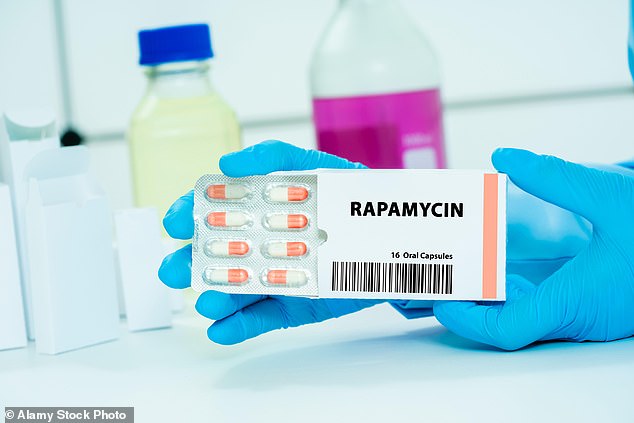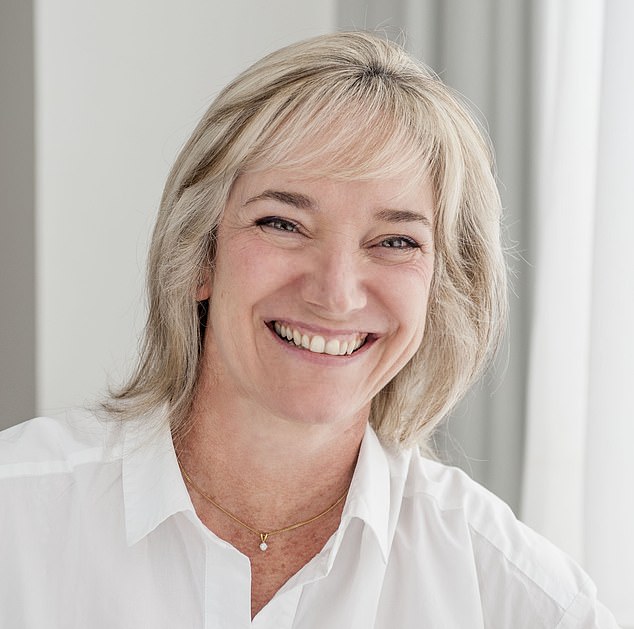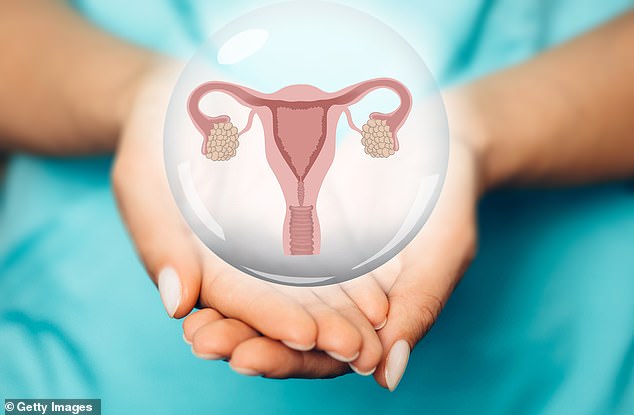Whether women want it or not, they have little choice but to go through the menopause. Or do they? What if the menopause was something that could be delayed – or even eliminated altogether? That’s what a handful of scientists believe could become a reality, with research teams worldwide exploring the various ways to achieve this.
Menopause occurs around midlife, when the ovaries run out of functioning eggs – this leads to a natural decline in oestrogen levels, which starts a few years before the menopause during the perimenopausal period.
While many women sail through the transition relatively symptomless, others struggle, overwhelmed by brain fog, hot flushes, a depleted sex drive and a host of other debilitating symptoms.
Hormone replacement therapy is an option, but carries a small increased risk of blood clots, stroke and breast cancer while the woman is taking it.
Yet delaying or halting the menopause might mean women could avoid menopausal symptoms – or even prevent the more serious effects of the drop in oestrogen, such as a raised risk of osteoporosis, dementia and heart conditions. This might even help women live longer.
‘It’s a controversial concept, with some questioning whether it’s really necessary or even an option women would want,’ says Richard Anderson, a professor of clinical reproductive science at the University of Edinburgh. ‘Yet it’s an area of menopause research that is garnering a lot of interest.’
There are currently two approaches being investigated for keeping the ovaries ovulating.
One involves a drug that’s already available – and used to prevent organ rejection in transplants – to slow down the rate at which the ovaries age.

The drug, rapamycin, appears to block the action of a protein that regulates cell growth and breakdown – helping preserve the number of follicles in a woman’s ovaries that contain immature eggs

Dr Paula Briggs says a new group of drugs which work on the hypothalamus, the area of the brain that controls body temperature, can ‘switch off’ hot flushes and night sweats

Richard Anderson, a professor of clinical reproductive science at the University of Edinburgh, says the idea of delaying menopause is attracting greater research
The drug, rapamycin, appears to block the action of a protein that regulates cell growth and breakdown – helping preserve the number of follicles in a woman’s ovaries that contain immature eggs.
This is a relatively low-cost immunosuppressant, costing from around £170 for 30 tablets.
Columbia University in the US is leading the research on this repurposed use of the drug, says Professor Anderson: previous animal studies at Columbia and other institutes have shown the drug reduces ovarian ageing in mice.
Now the researchers are carrying out a trial with 50 healthy women aged 35-45, who are taking 5mg of the drug in tablet form, or a placebo, once a week for 12 weeks (transplant patients typically receive 13mg daily for years).
They will be followed up to monitor their ovarian reserve using ultrasound scans and blood tests for up to a year. (Ovaries age so quickly that change can be measured over six months.)
Early results from the trial, which started last year, suggest this could delay the menopause by five years, say the researchers.
The second approach involves freezing women’s ovarian tissue between the ages of 21 and 40, a technique known as ovarian cryopreservation.
This involves surgery to remove part of an ovary’s ‘skin’ – essentially the tissue near the surface which contains thousands of immature eggs. This is then thinly sliced and frozen, before being re-implanted in the body later to restore hormone production and maintain fertility.

Menopause occurs around midlife, when the ovaries run out of functioning eggs – and this leads to a natural decline in oestrogen levels
‘This technique is already used in women who’ve undergone chemotherapy for cancer, to help restore fertility after their treatment,’ says Professor Anderson. The cost of the surgery and years of cryostorage can be upwards of £10,000.
A Birmingham-based company, ProFaM, started offering the technique for delaying the menopause in 2019.
According to calculations published last year in the American Journal of Obstetrics and Gynaecology, reimplanting bits of a woman’s frozen ovarian tissue every few years could potentially not only delay the onset of menopause but, if the tissue was removed from healthy women younger than 40, it might be possible to delay it by several decades.
In addition, ‘if ovarian tissue can be frozen under the age of 30, in theory, menopause can even be eliminated in some cases’, according to the researchers. The work was led by Dr Kutluk Oktay, a reproductive surgeon and director of the Laboratory of Molecular Reproduction and Fertility at Yale School of Medicine. He developed and performed the world’s first ovarian transplant procedure with cryopreserved tissue in 1999.
Dr Oktay suggests there is no practical limit for how long the tissue can be preserved and remain effective – suggesting it could be reimplanted five, ten or even 20 years later, and the ovaries will still function normally.
Professor Anderson told Good Health: ‘Whilst it would be implanted into the pelvis to restore fertility (next to the fallopian tubes), if it was done to delay menopause, it could in theory be grafted elsewhere in the body with a good blood supply, such as the forearm or abdominal wall, for instance.
‘There, it would still be able to release the hormones into the bloodstream, but there would be no risk of it releasing an egg which could become fertilised by sperm.’
Around 20 women with menopause-related issues, such as a family history of early menopause are now having their ovarian tissue removed and frozen for future reimplantation at Dr Oktay’s private clinic.
But some experts question if this line of research is actually worth pursuing.
‘Menopause is a phase of life and happens for a reason,’ says Dr Mamta Joshi, an endocrinologist at Epsom and St Helier University Hospitals NHS Trust, with a special interest in this field.
‘The idea that delaying it forever will prevent other health conditions is naive – it’s not that black and white. Simply having oestrogen in the body does not equal longevity.
‘Whilst it would delay the onset of osteoporosis and could reduce heart disease and dementia, we do not know what other effect prolonged exposure to oestrogen would have, but we do know that a higher risk of breast cancer is likely,’ adds Dr Joshi.
The risk of womb cancer could increase, too, she explains. Oestrogen and progesterone work together during the menstrual cycle – but if levels of progesterone drop, as they can in the years leading up to menopause, the oestrogen becomes ‘unopposed’, which may lead to the endometrial lining in the womb thickening, increasing cancer risk.
And as with any drug, rapamycin has potential side-effects. ‘We do not know what effects it’ll have elsewhere, nor the impact of taking it once a week to “delay” the menopause, as the research has indicated is necessary,’ says Dr Jasveen Dhami, a consultant obstetrician and gynaecologist at Royal Berkshire NHS Foundation Trust.
Meanwhile, freezing ovarian tissue could be hugely problematic, she adds. ‘Putting aside the cost – which would be huge – you’d be signing up to multiple invasive operations, which is clearly risky.
‘There is a place for this treatment when it comes to women having cancer therapy that will destroy their ovarian tissues; there may even be a place for it in those with a family history of early menopause – but there is never any guarantee it would work.’
For instance, at Dr Oktay’s clinic, more than 200 babies have been born since he first performed the first ovarian transplant – a 28 per cent success rate, according to a recent review.
What’s more, the tissue might not necessarily survive once reimplanted, explains Dr Dhami.’Firstly, it has to form new blood vessels and re-establish blood supply [animal studies show as many as 60 per cent of follicles don’t survive post-transplantation].
‘Then it’s only going to last about two years or so – by which time any viable follicles will have depleted so new tissue would need to be implanted to ensure the “benefits” continue,’ she explains.
‘Ironically, there is also a chance that removing healthy ovarian tissue could increase the risk of bringing on the menopause early – you could damage the ovary simply by carrying out the operation.’
But the more fundamental problem with all this is timing.
Professor Anderson says: ‘Both of these techniques would need to be started when someone was young and healthy to ensure the maximum benefit, when women have a much larger number of ovarian follicles, such as in your 20s.
‘I find it difficult to believe that someone in their 20s will even be thinking about the menopause, let alone think about taking drugs, or even booking themselves in for a major operation.
‘On the other side – would women in their 60s and 70s want to continue having periods?’
And it’s important to note that maintaining fertility – and getting pregnant – at a later age comes with its own risks, adds Dr Joshi.
Pregnancies over the age of 35 carry an increased risk of high blood pressure, gestational diabetes and pre-eclampsia. There’s also a greater risk of miscarriage (it’s 10 per cent in those aged 25-29, but goes up to 53 per cent by the age of 45).
In fact, there are a number of other options for minimising symptoms and the effect menopause has on health, suggests Dr Paula Briggs, immediate past chair of the British Menopause Society and a consultant in sexual and reproductive health at Liverpool Women’s Hospital.
She points to a new group of drugs, neurokinin antagonist therapies, which work on the hypothalamus, the area of the brain that controls body temperature and can ‘switch off’ hot flushes and night sweats.
Receptors in the hypothalamus are normally suppressed by oestrogen, balancing body temperature. But with the loss of oestrogen during menopause, the temperature can go haywire.
‘The oestrogen-free fezolinetant, a neurokinin antagonist, which is already licensed for hot flushes and night sweats, targets one particular receptor responsible for the problem,’ says Dr Briggs.
Currently it’s only available on private prescription, costing from £45 per month. However, the manufacturer is now seeking approval from the National Institute for Health and Care Excellence (NICE). ‘If approved, it will be available on the NHS in around six months’ time,’ she suggests.
Another drug, elinzanetant, targets an additional receptor in the brain that has a role in regulating sleep.
The results of trials, published in the JAMA Network last year, show women taking 120mg of elinzanetant daily had significantly reduced symptoms after 12 weeks (compared to a placebo group).
The drug is currently being assessed for licensing in the UK.
Vaginal dryness, itching and burning are other big menopausal problems, explains Dr Briggs. There’s a new treatment for these, Intrarosa, now approved for use on the NHS. A pessary, it contains DHEA, a hormone produced in the body that converts to oestrogen and testosterone.
And in terms of the long-term consequences of menopause, last year NICE approved abaloparatide (brand name Eladynos) for women at high risk of bone fractures due to osteoporosis.
‘Focusing on these treatments, along with our increasing awareness of the importance of lifestyle and diet during this time, is the way forward when it comes to dealing with the menopause – not trying to delay or cancel the process itself,’ says Dr Briggs.
Dr Joshi adds: ‘Menopause is a biological phase of life. For that reason, it’s not something we should be meddling with because we have no idea of the consequences if we do.’











